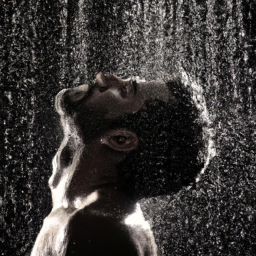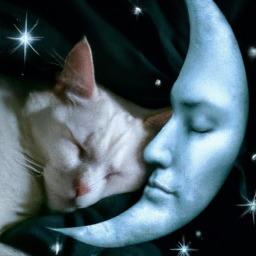I’ve always wondered why guys choose to take cold showers after having wet dreams. There are various theories floating around about the reasons behind this practice.
Some say it’s to reduce the physical discomfort, while others believe it’s to prevent a relapse or to overcome shame and guilt associated with wet dreams.
Despite the abundance of theories, I’ve never been able to find a definitive answer. That’s why I decided to do some research and write this article, delving deeper into the history and science behind cold showers and wet dreams.
I hope to provide some clarity and insight into this phenomenon, and perhaps even debunk some myths along the way. So, let’s dive in and explore the fascinating world of wet dreams and cold showers.
Key Takeaways
- Cold showers have been used as a remedy for wet dreams since ancient times, as they reduce physical discomfort and prevent further sexual activity during the night.
- Cold water constricts blood vessels, reducing inflammation and lowering body temperature, which can also reduce swelling and sensitivity.
- Cold showers can help calm the nervous system and improve mental health, as well as boost the immune system, improve circulation, and benefit skin and hair.
- Cold showers are a personal preference and not a foolproof method for controlling sexual urges, and cultural differences impact attitudes towards them after wet dreams.
What is a Wet Dream?
A wet dream is when a guy has an orgasm during sleep, typically accompanied by a release of semen. It’s a natural occurrence that happens to most guys at some point in their lives.
I remember the first time I had a wet dream, I was confused and didn’t know what had happened. But after doing some research, I learned that it’s a normal part of growing up and experiencing sexual development.
So why do guys take cold showers after a wet dream? Well, it turns out that this practice has been around for quite some time.
Let’s take a closer look at the history of cold showers and wet dreams.
The History of Cold Showers and Wet Dreams
Imagine yourself waking up from a night of intense dreams, your body feeling overheated and agitated, and you decide to hop into a frigid shower to soothe your senses.
This practice of taking cold showers after experiencing a wet dream has been around for centuries. In ancient cultures such as the Greeks and Romans, it was believed that cold water had a purifying effect on the body and could rid it of impurities, including sexual desires.
However, it wasn’t until the 19th century that cold showers became a more commonly prescribed remedy for wet dreams. This was largely due to the belief that wet dreams were caused by physical discomfort, such as indigestion or constipation.
Cold water was thought to help alleviate these symptoms and prevent future wet dreams. Despite the lack of scientific evidence to support this claim, the tradition of taking cold showers after wet dreams has persisted to this day.
The Physical Discomfort of Wet Dreams
Feeling overheated and agitated after a wet dream is a common physical discomfort that many people experience. The surge in hormones during sexual arousal causes an increase in body temperature, which can lead to sweating and restlessness. When this arousal culminates in a wet dream, the body is left with residual heat and tension that can be difficult to shake off.
One way to alleviate this discomfort is by taking a cold shower. The shock of cold water on the skin constricts blood vessels, which reduces inflammation and lowers body temperature. Additionally, the sensation of the cold water can be invigorating and help to wake up the body, making it easier to return to sleep.
It is believed that taking a cold shower after a wet dream can also help to prevent further sexual activity during the night. Some theories suggest that the cold temperature can reduce sexual desire and prevent the body from becoming aroused again. However, the reasons behind this practice are not fully understood and may vary from person to person.
Theories Behind Why Guys Take Cold Showers
I’ve always wondered why I feel the need to take a cold shower after a wet dream.
After some research, I found that there are several theories behind why guys take cold showers in this situation.
Some suggest that it helps reduce swelling and sensitivity, while others claim it can calm the nervous system and cool down emotions.
Reducing Swelling and Sensitivity
Reducing swelling and sensitivity is a common reason why guys take cold showers after wet dreams, as it can alleviate discomfort caused by increased blood flow to the genital area. The cold water helps to constrict blood vessels and reduce inflammation, which can reduce swelling and numb the area, providing temporary relief. Additionally, the shock of the cold water can stimulate the body’s natural painkillers, known as endorphins, which can further reduce discomfort.
To better understand why guys take cold showers after wet dreams, here are some possible reasons:
- To reduce inflammation and pain in the genital area
- To numb the area and provide temporary relief
- To stimulate the body’s natural painkillers
- To prevent future discomfort from increased blood flow
- To promote overall genital health
As we move into the next section about calming the nervous system, it’s important to recognize that taking a cold shower can have multiple benefits beyond just reducing swelling and sensitivity.
Calming the Nervous System
Calming the nervous system through various techniques, such as deep breathing and meditation, can have long-term benefits for overall well-being.
Taking a cold shower after experiencing a wet dream is one of the ways I personally use to calm my nerves. The sudden change in temperature helps me shift my focus and brings my attention to the present moment. It’s like a wake-up call that helps me transition from a state of arousal to a state of relaxation.
Moreover, taking a cold shower also helps me cool down my emotions. It’s not just about reducing the physical symptoms of arousal but also about dealing with the psychological aftermath.
After experiencing a wet dream, I often feel a mix of emotions that range from guilt to shame to embarrassment. By taking a cold shower, I can detach myself from these emotions and gain a clearer perspective on the situation. It’s like hitting the reset button and starting anew.
Cooling Down Emotions
You can manage your emotions after a wet dream by finding a healthy outlet, like journaling or talking to a trusted friend. Sometimes, our emotions can be overwhelming after a wet dream, and we may feel embarrassed or ashamed. Taking a cold shower can help us cool down and regain control of our emotions.
In fact, research has shown that cold showers can have a positive impact on our mental health by reducing stress and improving mood. To illustrate this point, the table below compares the emotions we may feel before and after taking a cold shower:
| Emotion | Before Cold Shower | After Cold Shower |
|---|---|---|
| Stress | High | Low |
| Anxiety | High | Low |
| Anger | High | Low |
| Sadness | High | Low |
| Happiness | Low | High |
As you can see, taking a cold shower can help us manage our emotions and improve our overall well-being. Other benefits of cold showers include improving circulation and reducing muscle soreness, which we will discuss in the next section.
Other Benefits of Cold Showers
Feeling invigorated and awake, taking cold showers can also boost your immune system and improve circulation. Here are three other benefits of taking cold showers:
-
Improves skin and hair health: Cold water helps to tighten pores and cuticles, which can make skin and hair look smoother and healthier.
-
Increases alertness and mental clarity: Cold water stimulates the body’s production of adrenaline, which can improve focus and concentration.
-
Reduces muscle soreness: Cold water can help to reduce inflammation and soreness in muscles after a workout.
While cold showers may not be for everyone, there are plenty of alternatives to try for those who’re interested in the benefits of cold water therapy.
Alternatives to Cold Showers
Looking for a way to reap the benefits of cold water therapy without taking cold showers? There are actually a few alternatives that can be just as effective. One option is to try contrast showers, which involve alternating between hot and cold water. This can increase blood flow, reduce inflammation, and improve overall circulation. Another option is to immerse yourself in a cold bath or pool for a few minutes at a time. This can have similar benefits to a cold shower, such as reducing muscle soreness and improving mental clarity.
If you’re not ready to take the plunge into cold water therapy just yet, there are other ways to improve your physical and mental health. Yoga, meditation, and deep breathing exercises can all help to reduce stress and promote relaxation. Exercise, proper nutrition, and adequate sleep are also important components of overall wellness. By incorporating these practices into your daily routine, you can support your body and mind without subjecting yourself to the discomfort of a cold shower.
Now, let’s move on to debunking some of the myths surrounding cold showers.
Debunking Myths
Believe it or not, there are many myths out there surrounding the benefits and drawbacks of cold showers. One of the most common myths is that cold showers can help treat depression. While there is some evidence to suggest that cold exposure may have mood-boosting effects, there is no scientific evidence to support the idea that cold showers can cure depression. In fact, some experts argue that cold showers may actually worsen symptoms of depression by triggering the body’s stress response.
Another myth surrounding cold showers is that they can help prevent hair loss. While it’s true that hot water can damage the hair and scalp, there is no evidence to suggest that cold water can prevent hair loss. In fact, some experts argue that cold water may actually constrict blood vessels in the scalp, which could potentially worsen hair loss.
So, while cold showers may have some benefits, it’s important to separate fact from fiction when it comes to their effects on the body. With that in mind, let’s take a closer look at how cultural differences can shape our attitudes towards cold showers.
Cultural Differences
You may not realize it, but cultural differences can greatly affect how people view the practice of taking cold showers after experiencing a wet dream. Here are some examples of how different cultures view this practice:
-
In some cultures, taking a cold shower after a wet dream is seen as a form of self-punishment for engaging in sexual thoughts or behavior.
-
In other cultures, taking a cold shower after a wet dream is seen as a way to cleanse oneself of impure thoughts and desires.
-
Some cultures do not view taking a cold shower after a wet dream as necessary or even beneficial.
-
In some cultures, taking a cold shower after a wet dream is seen as a way to prevent further sexual thoughts or behavior.
-
In other cultures, taking a cold shower after a wet dream is not discussed or acknowledged at all.
It’s important to recognize that cultural differences can greatly impact how we view and understand certain behaviors. In the case of taking cold showers after wet dreams, it’s no different. But regardless of cultural beliefs, it’s important to have open and honest conversations about sexual health and hygiene.
Talking about wet dreams and cold showers can be uncomfortable, but it’s necessary in order to promote healthy attitudes towards sexuality. So let’s move on to the next section and continue the conversation.
Talking About Wet Dreams and Cold Showers
Growing up, I was always told that talking about wet dreams or any sexual activity was taboo. It was seen as something that should be kept a secret and never discussed.
However, as I got older and started having more open conversations with my male friends, I realized that this was not the case for everyone. In fact, some of my friends openly talk about their wet dreams and even their post-dream rituals, such as taking cold showers.
So why do guys take cold showers after wet dreams? From what I’ve gathered, it seems to be a way to help control their urges and avoid any sexual thoughts or feelings. The cold water is a shock to their system and can help redirect their focus to something else.
Additionally, it can help reduce any potential physical arousal that may have occurred during the dream. While it may not be a foolproof method, it seems to work for some guys and is a personal preference.
Frequently Asked Questions
Can girls have wet dreams too?
Yes, girls can have wet dreams too. It’s a normal and natural occurrence during REM sleep. The experience may vary but can be pleasurable. It’s nothing to be ashamed of and doesn’t indicate anything negative about one’s character or sexuality.
Are wet dreams harmful to the body?
Wet dreams are a natural bodily function and are not harmful to the body. They are a result of sexual arousal during sleep and can occur in both males and females.
How often do guys typically experience wet dreams?
As a guy, wet dreams can happen at any time, but typically occur during puberty when testosterone levels are high. The frequency varies, but it’s normal and not harmful to the body.
Are there any health risks associated with taking cold showers?
Taking cold showers can be invigorating, but excessive exposure to cold water can lead to hypothermia and other health risks. It’s important to balance the benefits with proper caution.
Can taking a warm shower have the same benefits as a cold shower after a wet dream?
Taking a warm shower after a wet dream can also have benefits such as relaxation and cleanliness. However, a cold shower is specifically known for reducing inflammation and improving circulation, which can aid in recovery.
Conclusion
In conclusion, taking a cold shower after experiencing a wet dream is a common practice among guys. The physical discomfort and embarrassment that come with a wet dream may be the primary motivators for doing so. Additionally, the benefits of cold showers, such as increased alertness and improved immune function, may also play a role in this practice.
However, it’s important to note that taking a cold shower isn’t the only option for dealing with a wet dream. Alternatives such as changing clothes and bedding, practicing relaxation techniques, and seeking support from a trusted friend or therapist can also be effective.
Ultimately, the decision to take a cold shower after a wet dream is a personal one, influenced by cultural norms and individual preferences.









